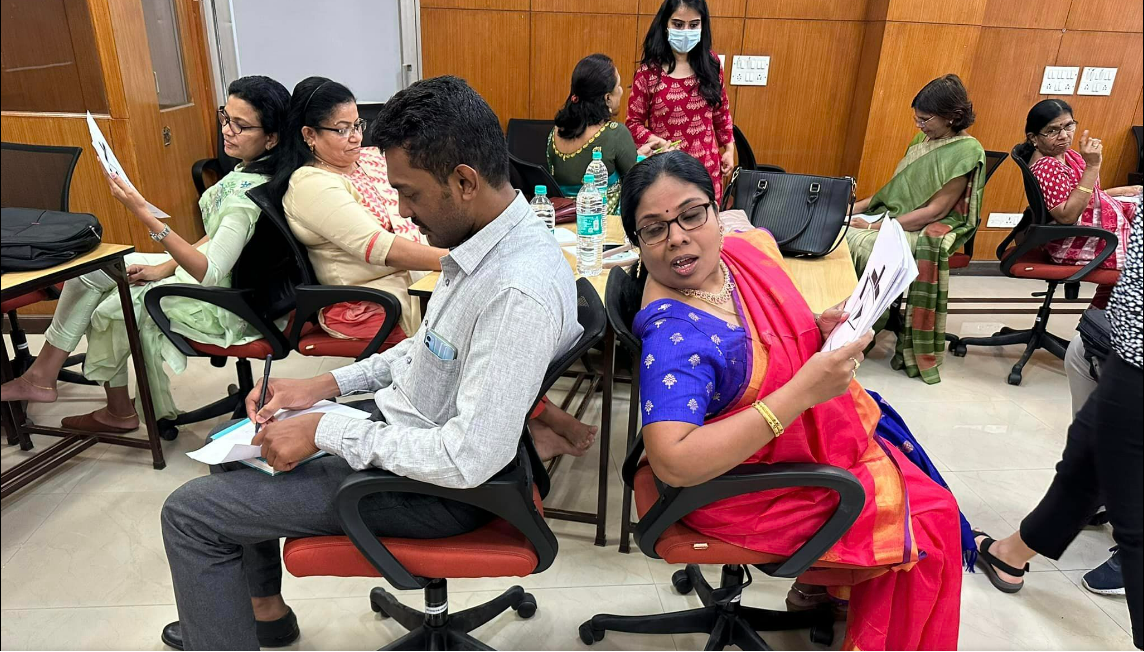Like Ghana, India has witnessed a health care brain drain as tens of thousands of qualified nurses go overseas, driven away in part by the same lack of respect, training, and financial support for the profession seen in that African nation.
The Johns Hopkins School of Nursing (JHSON) and its Center for Global Initiatives are doing their part to change the dynamic by educating and empowering nursing leaders and then having their backs as attitudes toward non-physician health workers catch up with the times—and the need.
“The Johns Hopkins School of Nursing is honored to collaborate with and to support the agenda and significant progress of the Indian Ministry of Health and Family Welfare and global strategic directions for nursing,” says Professor Nancy Reynolds, PhD, MSN, RN, FAAN, associate dean for global affairs, director of the Center for Global Initiatives at JHSON, and co-director of the World Health Organization’s Collaborating Centre for Nursing Information, Knowledge Management.
“It’s wonderful to be able
to formally give back.”
An inaugural program, Training the Trainers on Leadership in Prevention and Control of Infection for Nursing Professionals, “builds upon Johns Hopkins University’s long-standing, extensive partnerships with institutions in India, dating back to the 1930s and, more recently, with the establishment of the Gupta-Klinsky India Institute [GKII],” explains Reynolds, renowned for her work in global research and leadership.
GKII’s mission is to mobilize JHU faculty, staff, students, and alumni to work with partners in India to improve society through research, education, policy, and practice. Training the Trainers featured key contributions by Reynolds, Associate Professor Vinciya Pandian, PhD, MBA, RN, FAAN, and GCI Manager Maria Docal MPH, RN, of the Johns Hopkins School of Nursing, and Brian Wahl, PhD, of the Bloomberg School of Public Health.
This master nursing leadership training program welcomed 128 nurses representing northeastern, northwestern, and southern states in India between October 2022 and February 2023. More such programs, part of a nationwide initiative by the Indian Ministry of Health and Family Welfare to change attitudes and improve care, are being planned.
Johns Hopkins faculty and staff developed and recently implemented a master nursing leadership training program on infection prevention and control practices. Dr. Nancy Reynolds, Dr. Vinciya Pandian, and Maria Docal of the Johns Hopkins School of Nursing and Dr. Brian Wahl of the Bloomberg School of Public Health represented JHU’s contributions to the program, which is part of a nationwide initiative by the Indian Ministry of Health and Family Welfare to change attitudes and, of course, improve care.
“In the 21st century, infection prevention and control have become integral components of nursing practice worldwide, contributing to the creation of safe environments that foster optimal patient outcomes. Leadership training in Infection Prevention and Control is poised to play a pivotal role in advancing the critical leadership responsibilities of nurses in infection prevention and control across India through the preparation of 70,000 nurses.”
Changing a generations-old mindset won’t be easy, or fast. In her youth in India, Pandian’s own father pushed her toward medical school, judging the nursing profession as lowly. Accepted to both medical school and the College of Nursing, Christian Medical College, Vellore, Pandian got her way when her father was unable to pay the medical school bribe.
Today, she is a doctor and a nurse, a global expert in tracheostomy, and JHSON assistant dean for immersive learning and digital innovation. And she’s training and fighting for nurses in India so future generations of daughters will feel empowered to stay and serve their communities there.
“It’s wonderful to be able to formally give back,” Pandian says, adding her appreciation for the efforts of Reynolds and the GKII. “Without their support, I could not have contributed at this global level.”


